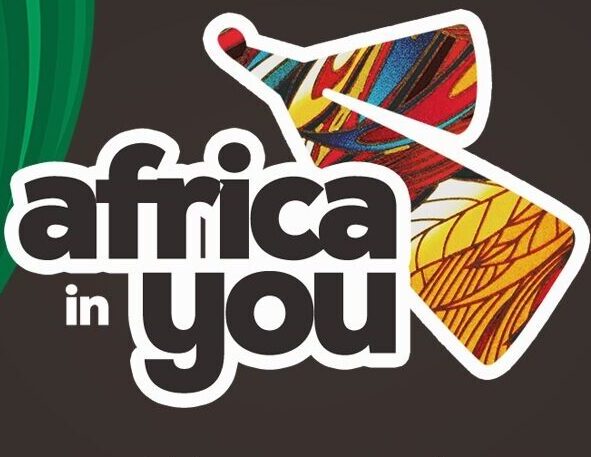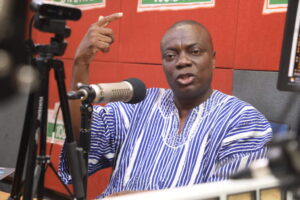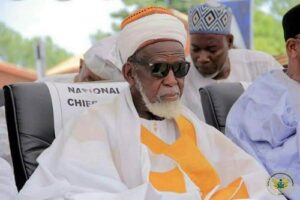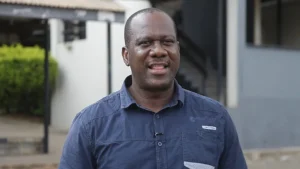
Workers of Atlantic Lifesciences Limited, the biggest manufacturing unit for intra-veinous fluids in West Africa near Old Ningo in the Greater Accra Region
Four African countries – Rwanda, South Sudan, Eswatini, and, most recently, Uganda – have agreed to accept deportees from the United States of America (USA).
These people are almost entirely citizens of other countries.
Uganda is the latest African country to strike a deportation deal with the United States as President Trump increases controversial efforts to remove migrants from America.
Uganda’s Ministry of Foreign Affairs stated on August 28 that Kampala has agreed for Washington to send over third-country nationals facing deportation from the USA, who are unwilling to return to their home countries.
Human rights groups and law experts have denounced President Trump’s scheme to deport millions of undocumented migrants from the USA, among them are people the White House describes as ‘convicted criminals’ and ‘uniquely barbaric monsters’.
What do African countries get out of the deal? Ugandan President Yoweri Museveni and the US Secretary of State, Marco Rubio, have held phone discussions on ‘migration, reciprocal trade, and commercial ties’.
Eswatini (formerly Swaziland) has accepted a similar deal to that of Uganda: lower tariffs on exports.
Neighbouring South Africa must pay 30 per cent tariffs; Eswatini is now exempt from them.
Visas and tariffs
Uganda’s announcement coincides with reports in The Washington Post, indicating that the Trump administration is contemplating expanding visa and travel restrictions to include as many as 36 countries—a notable increase from the 19 nations affected during the president’s initial term.
Although Ghana has not been explicitly named in any expanded ban, the Minister of Foreign Affairs, Samuel Okudzeto Ablakwa, stressed in June that the government was remaining vigilant.
Mr Ablakwa explained: “We’ve had very productive meetings with the US State Department and White House officials.
Ghana’s long-standing and strategic ties with the United States will count for something.”
While there is as yet no suggestion that Ghana’s government is contemplating agreeing to an arrangement with the USA like that of Uganda, the issue could become a feature of Ghana-USA relations going forward.
In August, the USA imposed new 15 per cent tariffs on imports from several West African nations, including Ghana, Nigeria, Côte d’Ivoire and Cameroun, under a sweeping executive order issued by President Donald Trump.
The aim, Mr Trump asserted, is to improve persistent trade imbalances, which he believes threaten America’s national security.
Ghana primarily exports crude petroleum, along with other products such as cocoa powder and rubber, to the United States, as well as gold and manganese ore.
The new 15 per cent tariffs will significantly affect Ghana’s attempts to sell such products to the USA.
Civil society reactions?
The possibility that Ghana’s government might explore an arrangement with the Trump administration to accept deportees in exchange for reduced tariffs and trade concessions has the potential to incite fervent public debate.
Although there is no formal indication that such a deal is being considered, the memory of President Mahama’s decision in 2016 to accept two Yemeni ex-detainees from Guantanamo Bay remains fresh in the minds of many.
Although Mr Mahama claimed his decision was a humanitarian initiative, he nevertheless faced widespread scrutiny and robust opposition from civil society organisations (CSOs), faith-based organisations (FBOs), and opposition parties. Concerns were raised regarding transparency, national security, and the decision’s constitutional legitimacy.
Should Mr Mahama’s current administration, which has a two-thirds majority in Parliament, contemplate a similar arrangement to accommodate Mr Trump’s deportee policy – to receive reduced tariffs and thus enhance exports under its flagship 24-Hour Economy – then the response of civil society would likely be diverse yet mainly critical.
The government might respond that reducing US tariffs on commodities such as cocoa, crude oil and gold would significantly boost Ghana’s foreign exchange earnings and encourage industrialisation and job creation efforts.
Proponents of the export-driven 24-Hour policy might present the arrangement as a pragmatic trade-off, arguing that the benefits to the national economy outweigh the potential reputational harms.
Nonetheless, CSOs would be poised to challenge this perspective.
Civil society would highlight humanitarian and ethical dilemmas associated with resettling deportees who are not Ghanaian citizens, particularly if individuals include ‘convicted criminals’ and ‘uniquely barbaric monsters’.
FBOs would voice concerns over the moral obligation to take on external social challenges as Ghana grapples with its own issues, such as unemployment, housing shortages, and escalating insecurity.
Security experts would underscore the risks posed by settling large numbers of foreign nationals, including those with complicated legal or criminal histories.
The Guantanamo precedent indicates that governmental decisions made without thorough public consultation foster distrust and undermine democratic accountability.
Given that Mr Mahama’s party controls Parliament, critics would worry that parliamentary oversight would be lacking, stifling genuine debate.
Strong advocacy from coalitions of CSOs, FBOs and perhaps labour unions could be expected: demands would be made for transparency regarding the proposed terms of any putative agreement.
In conclusion, while the government might potentially view a USA deportee arrangement as a strategic lever to bolster its export-driven 24-Hour Economy, civil society would likely find it problematic.
The resulting national discourse would once again test the intricate balance between economic pragmatism and the nation’s democratic and humanitarian principles.
Such discussions would be crucial in determining how Ghana navigates the intersection of international relations and domestic values, ensuring that the nation’s integrity is upheld while striving for economic progress.
The writers are an Emeritus Professor of Politics, London Metropolitan University, UK and a Political Scientist.






